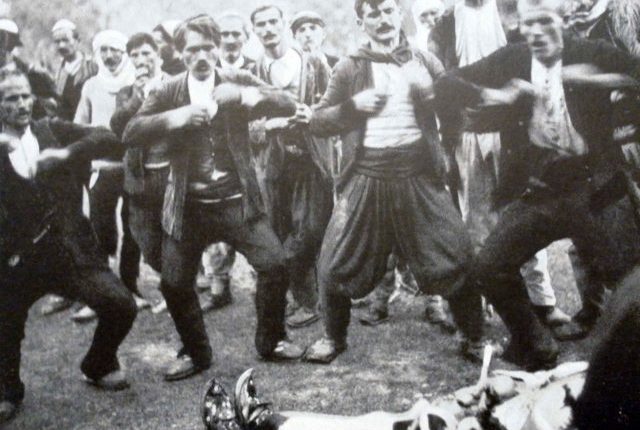In the totality of the historical-cultural phenomena of the tradition, syncretized in the spiritual life of our people, a very special place is occupied by popular laments for death, for the deceased and his escort to the grave.
In our folkloristics, the first lament we know is “Ajkuna weeps for Omer”, her son killed in the war.
The first lament songs were structured and began with rhetorical questions like “why are you leaving life?”, ending with the further activities of the other world: “And when you arrive in that other world, you have in old men”.
In the northern part of Albania, Albanian laments are more archaic. They were accompanied by collective songs, improvised by women and less often by men, which were sometimes accompanied by dance, but only on the grave.
Later, individual laments must have manifested where mothers and sisters took the main role. Meanwhile, with the class division of society, professional mourners also appeared.
In 1641, Frang Bardhi describes the grief of men and the grief of women in his writings, where he says that Albanians cry with all their heart for the people of their own blood at the moment of death. Meanwhile, Pjetër Budi in “Roman Ritual” (1621) calls these lamentations of a pagan nature “the ugliest on this earth”.







 Rruga e Elbasanit, Pallati nr. 111,
Rruga e Elbasanit, Pallati nr. 111,